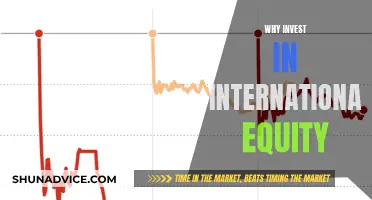
A platform investment in private equity refers to the initial acquisition of a company by a private equity group, which then serves as a base for further acquisitions of smaller, synergistic companies in the same industry. This strategy, known as buy and build, aims to increase the value of the platform company through rapid growth and strategic acquisitions. The private equity group then sells the platform company at a premium price after a period of 3-7 years, providing returns to its investors. Platform companies are typically well-established, top players in their industry, with strong management and well-defined systems, making them attractive targets for private equity groups.
| Characteristics | Values |
|---|---|
| Definition | A platform investment is the initial acquisition made by a private equity group in a specific industry or marketplace |
| Purpose | Rapid growth |
| Investment type | Private equity firms invest in mature companies rather than startups |
| Investment size | Companies valued below $500 million, particularly those valued below $100 million |
| Investment focus | Companies in high-growth industries that are commanding a significant market share |
| Investment criteria | Geographical location, EBITDA, industry, positive cash flows, and potential for growth |
| Management | Strong and experienced |
| Company type | Top player in its industry |
| Company systems | Well-defined |
| Company performance | Top performance in the industry |
| Add-ons | Smaller firms that are synergistic to the platform's operations |
| Returns | Maximum amount of return to partners |
| Time horizon | 3-7 years |
| Sale | Sold at a higher value |
What You'll Learn
- Platform companies are the initial acquisition made by a private equity group in a specific industry or marketplace
- Private equity groups intend to grow platform companies using capital from investors
- Platform companies are then used to acquire other companies in a related industry
- After several acquisitions, the private equity group will sell the platform company at a higher value
- Private equity firms buy and manage companies before selling them, often making operational and financial changes

Platform companies are the initial acquisition made by a private equity group in a specific industry or marketplace
A platform company is the initial acquisition made by a private equity group in a specific industry or marketplace. It is usually the first investment into an industry that a private equity (PE) firm makes, with the stated objective of growing the company using capital from investors and then adding to the platform via the acquisition of smaller, synergistic firms.
Private equity firms tend to invest in platform companies that are top performers in their specific niche markets. These companies often employ innovative systems that give them an advantage over their competitors. After the purchase, the private equity group will seek complementary add-on acquisitions to make the company more profitable and dominant in the industry.
Platform companies create value by facilitating exchanges between consumers and producers of goods or services. They create large networks of users and resources that can be accessed on demand. The platform must establish rules that govern how users relate and interact with each other, providing tools and services to facilitate transactions and ensure both parties are treated fairly.
Private equity groups may create up to six platforms for each fund, and they are grown organically before bolt-on acquisitions are added to each platform company. The private equity group will grow the platform by using it to acquire other companies, or "add-ons", in a related industry. As the platform acquires these add-ons, its value will increase. After 3-7 years, when several acquisitions have been made, the private equity group will sell the platform at a higher value, providing a maximum return to its partners.
One example of a platform acquisition is when Pfingsten, a private equity firm, invested $382 million in Oliver Printing Co. with the intention of creating a new packaging entity by acquiring other smaller companies in the industry.
E-commerce Investment Strategies for India: A Comprehensive Guide
You may want to see also

Private equity groups intend to grow platform companies using capital from investors
The acquisition of add-ons allows the platform company to fill strategic needs, increase density in its current operating area, or expand its geography. Each of these benefits allows the platform company to grow in scale and earnings, providing a higher Internal Rate of Return (IRR) for investors.
For example, if a private equity group acquires a medical company as a platform, it can then use that platform to acquire a manufacturer of medical equipment, such as imaging parts. This would help fulfill the needs of technicians within the medical company and eliminate costs associated with purchasing parts from another company.
Private equity groups also tend to prefer platform companies that are reasonably capitalized and have broad market exposure. These companies are usually limited to one industry but are of sufficient size and have the capability to acquire and support add-ons.
The ultimate goal of a private equity group is to provide maximum returns to its investors, and this is achieved by growing its platforms. The capital for these acquisitions comes from investors in the private equity funds that the groups establish and manage.
A Guide to Investing in Paytm: What Indians Need to Know
You may want to see also

Platform companies are then used to acquire other companies in a related industry
A platform company is the initial acquisition made by a private equity group in a specific industry or marketplace. The acquisition acts as the starting point for other acquisitions in the same industry.
Private equity groups intend to grow the platform company by using capital from investors to acquire other companies, or "add-ons", in a related industry. As the platform acquires its add-ons, its value increases.
For example, if a private equity group acquires a medical company, they may use that company as a platform to acquire a manufacturer of certain medical equipment, like imaging parts. This acquisition would help fulfill the needs of technicians within the medical company who are servicing the imaging equipment and eliminate certain costs that would come with purchasing those parts from another company.
Platform companies are generally market leaders nationally or in their geography, and they have the brand, operating procedures, and staff to handle the growth that usually comes with "add-on" acquisitions. They are able to absorb additional businesses with relative ease.
Private equity investors generally accumulate companies under a platform with the goal of selling to a larger investor or company. The work they do to acquire and integrate multiple companies creates a larger valuation than if those individual companies were bought or sold independently.
Indian Investors: Your Guide to NFT Investing
You may want to see also

After several acquisitions, the private equity group will sell the platform company at a higher value
A platform company is the initial acquisition made by a private equity group in a specific industry or marketplace. This acquisition acts as the starting point for other acquisitions in the same industry.
Private equity groups invest in platform companies with the intention of growing them. They do this by using the platform company to acquire other companies, or "add-ons", in a related industry. These add-ons are smaller firms that are synergistic with the platform company's operations. As the platform company acquires these add-ons, its value increases.
After 3-7 years, during which the platform company will have made several acquisitions, the private equity group will sell the platform company at a higher value. This allows the private equity group to provide a maximum return to its partners. Once the platform company is sold, the limited partners who pledged capital to the original purchase of the company receive a return on their investment.
For example, a private equity group may use a medical company as a platform to acquire a manufacturer of certain medical equipment. This acquisition would help fulfill the needs of technicians within the medical company and eliminate certain costs associated with purchasing parts from another company. The platform company can then further expand by acquiring businesses that lend themselves to the functions of the imaging parts company, and so on.
Another example is a roofing company that serves a 100-mile radius. If this company becomes a platform, it can start to buy up other roofers in the area, reducing competition and costs associated with employee travel time. With these reductions in competition and costs, the roofing company's value will begin to increase.
Understanding Client Needs: An Investment Manager's Guide
You may want to see also

Private equity firms buy and manage companies before selling them, often making operational and financial changes
Private equity firms typically buy companies with the intention of increasing their value and selling them at a profit. This can involve making operational and financial changes to the business, such as implementing efficiencies, expanding the market reach, or innovating products and services.
Private equity firms may also take a more hands-off approach, acting as passive investors and relying on the company's management to grow the business. In these cases, the private equity firm may provide operational support and use their industry connections and expertise to help the company grow.
One common strategy employed by private equity firms is the "buy and build" strategy, where they buy a new platform company and use its established management systems to acquire subsequent add-on companies. Platform companies are usually the initial investment made by a private equity firm in a specific industry, which then serves as a starting point for further acquisitions. These add-on companies are often smaller firms that are synergistic with the platform company's operations.
Private equity firms may also make changes to the acquired company's management team, bringing in their own executives with industry experience and a proven track record. They may also provide post-acquisition support in the form of professional management, financial acumen, operational expertise, and sales and marketing experience.
The private equity firm's goal is to maximize returns for their investors, and they typically have a time horizon of four to seven years to increase the company's value before selling it.
Market Downturn: Understanding Your Portfolio's Monthly Decline
You may want to see also
Frequently asked questions
A platform investment is the initial acquisition made by a private equity group in a specific industry or marketplace. The acquisition acts as the starting point for other acquisitions in the same industry.
The purpose of a platform company is rapid growth. The singular goal of a private equity group is to provide the maximum amount of return to its partners, which can only be done by growing its platforms.
Platform companies generally have strong and experienced management, are top players in their industry, and have well-defined systems.
One pro of being a platform company is the option to execute an equity rollover, which can lead to a larger payday when the business sells again in 3-7 years. A con of being a platform company is losing majority control of the company and the ability to direct operations.







